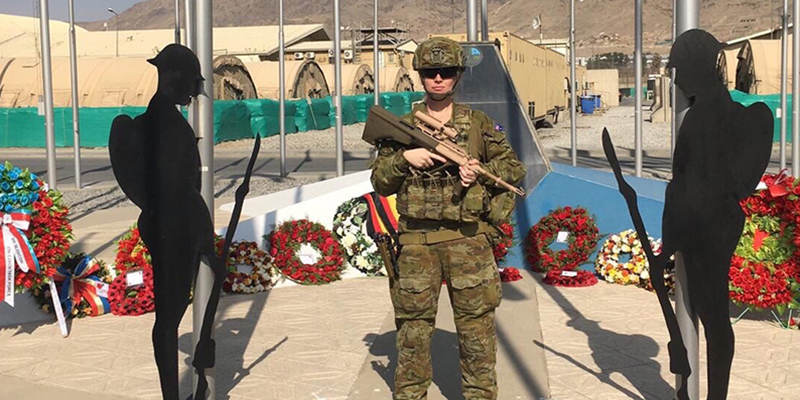Austrade will provide weekly regional updates on the progression and impact of COVID-19 around the world, to support the international education sector as the situation continues to evolve. These reports are compiled using the latest on-the-ground information and advice. The following updates include markets and regions for:
- Europe
- Middle East and Africa
- North Asia
- Latin America
- North America
Europe
- Europe is now considered the global epicentre of the COVID-19 pandemic.
- On March 17, the European Union (EU) took the unprecedented step of closing the EU’s external borders to all non-EU nationals for 30 days in a bid to curb the spread of the virus.
- Most countries are currently in total or partial lockdown, including the closure of schools and universities, with a ban on public gatherings and events. These measures are being implemented on a country-by-country basis in accordance with national/federal government directives, although some further directives are also being implemented at a state/regional/provincial level.
- There is a high level of remote working taking place across the region, with remote learning options being implemented to counteract school/university closures (however, there is not a uniform approach to this). Student mobility is suspended.
- There are limited international flights to/from the region and some airports have closed temporarily.
- Most countries are advising their citizens not to travel at this time.
- The incidence of COVID-19 has not yet peaked in Europe, with the number of cases and deaths rising daily in most countries.
- There is expected to be a significant economic fall-out as a result of the virus.
Middle East and Africa
United Arab Emirates
- With the number of COVID-19 cases increasing (total of 153 as at 22 March), the United Arab Emirates (UAE) is taking extensive measures across the country to prevent the further spread of COVID-19. All educational institutions — public and private — have been closed since 8 March, for an initial period of four weeks.
- Schools and universities across the UAE are offering distance learning to students during the period of closure, and each school in the UAE commenced an online offering on Sunday 22 March. Universities are at skeleton staff and providing distance learning options — including three Australian universities operating in the UAE.
- As the country shifts to remote learning, free online training courses are being offered by the government to upskill teachers with necessary skills to conduct distance learning.
- Student recruitment activities are moving to digital and virtual options. The Ministry of Education is monitoring the global COVID-19 situation and the impact on their students studying abroad.
- Saudi Arabia
- All K-12 public schools in Saudi Arabia are now accessing virtual classrooms via a national portal.
Turkey
- Schools and universities have been closed from mid-March, and from April onwards the government will implement online education by internet and/or television.
- At this stage the government has not announced the commencement date for this semester, however given distance education preparations, this may indicate that distance education will be a focus for the remaining semester.
- Education fairs have been postponed to June 2020, and local higher education entrance exams have been cancelled for this year.
- The government is recommending home isolation. All meetings, gatherings, parties, conferences are now restricted. The private sector responded quickly to the crisis, with many ceasing standard office operations. Official curfews exist for people who are 65+ or with a health condition.
Iran
- Schools and universities have been closed since mid-February. The government rolled out successive closures city by city.
- Most schools and universities are unable to offer their courses online. Some private schools and prestigious universities are providing online learning. The government has announced the school/university year will be extended.
- Most government and education service providers are working remotely, or on shifts, with face-to-face meetings being restricted.
- Iranians in general including students, are not able to travel to Australia, but interest continues for future study in Australia. For example, in the past four weeks, education agents are experiencing a decrease in student enquiries for international study generally, but have seen interest grow for Australia.
- The National Organisation of Educational Testing has requested the IELTS organisers to postpone tests from early March to late April.
South Africa
- There is currently a national ban on gatherings of more than 100 people — this includes school and related activities.
- All schools have been closed from 18 March until 14 April. It is anticipated that lost school days will be made up by shortening the June and September school holidays. Universities have also been closed from 18 March, and classes will resume online/via distance learning from 30 March.
- Education recruitment fairs have been cancelled and there has been a sharp decline in inquiries. The Australia Africa University Network (AAUN) Africa Forum scheduled to take place in Pretoria on 30 March will not proceed.
- Outbound travel bans are in place, with South Africans banned from travel to high risk countries (China, South Korea, EU, US, UK); travel to medium risk countries is not advised (Singapore, Australia). Foreigners arriving from high risk countries are being refused entry. Medium risk countries are required to undergo extensive testing before being allowed to enter South Africa. South African Airlines are suspending all international flights.
Mauritius
- National confinement is in place from 20 March, with permits issued by the government for persons engaged in essential work only. Non-essential activities are barred, and people have been advised to remain at their residences. Only essential services remain open.
- While all inbound flights are suspended, outbound flights are operational. There is a ban on any foreign arrivals, which includes Mauritians or other passport holders for the next 14 days.
North Asia
China
- As China continues to see a resumption of activity in the wake of COVID-19, Shanghai played host to the ‘Cloud Career Fair’ on 16 March. The event targeted professionals and HE graduates in the city’s five focus areas — economy, finance, trade, shipping, and scientific and technological innovation and offered more than 100,000 positions.
- On February 28, a Campus Recruitment Service Campaign for 2020 higher education graduates nationwide was officially launched by a campus recruitment portal under the auspices of the MOE, in collaboration with five leading job-hunting websites including 51Job, Zhaopin, Boss Zhipin, ChinaHR, and Liepin. According to the National College Student Information Consultation and Employment Guidance Center, more than two million positions have been released through the Campus Recruitment Service Campaign within a week of its launch.
- The MoE has made public that 44 new joint programs in higher education were formally approved in the second half of 2019, including four joint programs between Chinese and Australian institutions (Wollongong University, Curtin University, James Cook University and International College of Management, Sydney).
Korea
- Daily new infections of the coronavirus in Korea bounced back to a three-digit figure with most cases appearing in Daegu as of Thursday 19 March.
- The Ministry of Education has extended the delay of opening the first semester of K-12 by two more weeks, until 6 April.
- According to agents’ feedback, Korean students who are scheduled to enter Australia in May-June to commence courses from July semester are uncertain of their plans. However as the travel ban was expected, most agents and students are just monitoring the situation.
- A program to promote Australian blockchain education capability is being prepared for publication in the Korean Council for University Education report. The scope will include the use of blockchain for credential verification, blockchain courses, research and governance in blockchain. It is likely that there will be a renewed focus on distance learning — enabling this type of capability will be of interest in Korea.
Japan
- There is limited COVID-19 related impact on higher education (HE), VET courses and school enrolments from Japan into Australia, with only two students known to be deferring their HE study and none among these sectors cancelling their study plans.
- However, the ELICOS sector has been greatly impacted by COVID-19, with large numbers of cancellations and deferments. Australia is not the only country affected, these trends apply to competitors as well.
- The differences between HE, VET and schools vs ELICOS can be accounted for by the typical shorter length of time Japanese spend studying ELICOS courses (much shorter than at HE, VET and schools), with the 14 day mandatory self-isolation being the largest factor in determining cancellation or deferment for ELICOS courses.
- Study tours of Australia have also been impacted by COVID-19, though there has been little difference in impact between university administered study tours and high school study tours. For university administered study tours, their peak period is usually mid-February (as Japanese university spring holidays start in February) and fortunately most participants had already left for Australia by his time, and are currently undertaking classes. Two universities (about 40 students) have cancelled their study tours scheduled in March.
- Study tours for high school students are usually scheduled in March during their spring holiday. Due to the strict government policies to mitigate COVID-19, most high school study tours have been cancelled.
- In terms of the impact on competitors, as reported below, most of their embassy sponsored education fairs have been cancelled. However a number of Japanese education agents still plan to continue.
- Of concern is further reporting from agents of poor treatment of Japanese students by homestay families. These have been isolated cases, but have capacity for long term damage to perceptions of Australia as a study destination. Reputation damage as a result of experiences like these, as a proportion to the actual number of incidents, should not be underestimated. Good pastoral care is a critical element that the Japanese require when making a decision on a destination to study abroad. It is recommended that institutions, schools and universities ensure that they and/or their agents and partners have rapid and effective strategies in place to respond to these types of incidents.
Latin America
Mexico
- Official figures of confirmed cases are still relatively low, while the government reaction to COVID-19 has been relatively slow, compared to other countries in the region. Ten states have suspended classes from 17 March.
- The Federal Ministry of Education has suspended all classes in all affiliated schools from 20 March.
- Most private universities have now suspended classes, with all campus locations expected to close within the coming week.
Brazil
- Schools, shopping malls and gyms are now closed and Brazil has closed its borders with 15 countries.
- Foreigners entering the country through airports will be restricted, with the government focusing initially on those considered to be from higher risk regions, such as the European Union, with Australia likely to be included soon also.
- Education agents, through agent associations, such as BELTA and ABRASEEIO, are suggesting that the Australian government should allow students who have been granted a visa, to be issued a new visa (free of charge), at a later date.
Argentina
- The Australia Educa Fair, originally planned for May 2020 has been postponed to the end of September/early October.
Peru
- A State of Emergency and national lock down has been in place since 15 March. This includes a strict and enforceable curfew from 8pm to 5am, and the full closure of all airports, which went into effect within 24 hours of the Presidents’ announcement.
- Schools, universities, colleges, etc, will be suspended until further notice at this stage, with most private universities providing online classes to students.
- The Ministry of Education has announced they are closing until 1 April.
- Local education agents are committed to maintaining prospective student engagement during this challenging period and are seeking to understand how they can continue their engagement with the Australian sector.
- PRONABEC will postpone, rather than cancel, their Scholarship Presidente de la Republica and will publish the process online through the PRONABEC website.
Colombia
- President Ivan Duque declared a State of Emergency on 17 March, ordering the elderly to stay at home from 20 March until the end of May.
- The President has also ordered all public and private schools to halt classes until 20 April.
- The Mayor of Bogota has commanded an isolation drill requiring people to stay off the streets from 5am Friday 20 March to Monday 23 March, or else face a possible fine.
- From midnight 23 March, Colombia has barred the entry of any incoming people, including Colombian citizens/residents.
Chile
- School and university classes have been suspended and Chilean borders closed on 18 March
- A total lockdown is now occurring with a curfew announced from 23 March.
North America
- US and Canadian universities and schools have shifted to remote learning methods (including examinations), or temporary closures. Additionally, travel restrictions will impact many study abroad programs.
- The US Department of Education has expanded guidance, issued to accreditors earlier this month about the level of flexibility they can offer colleges, and are moving classes online due to COVID-19. The department said accreditors could conduct site visits virtually at their discretion, though an in-person visit is expected at a later date. Virtual visits must be interactive, such as through phone and video calls, ‘rather than solely document reviews or exchanges of emails,’ the guidance explains.
- The Centres for Disease Control and Prevention (CDC) issued guidance on best practices for colleges and universities that have confirmed cases of COVID-19 on campus, and for those that do not.
- College enrolment officials are reporting widespread concern that they won’t be able to fill their fall 2020 classes due to COVID-19, a new EAB report reveals. A consulting firm surveyed about 250 enrolment leaders, and asked on a scale of 1 to 5 how worried they were about meeting their enrolment goals for the coming semester. Three-quarters answered with a 4 or 5, the highest levels of concern.
- Rep. Bobby Scott, D-Va., chair of the House’s education committee, introduced a bill Monday that would give colleges US $1.2 billion in emergency aid for students affected by the COVID-19 pandemic. Colleges could also receive part of an additional $1.2 billion that would help K-12 and postsecondary institution.
- Edtech companies are providing free and discounted tools for online learning and are facing an upswing in members and participation during this pandemic. As an example, two large MOOC providers are opening access to their course catalogues to help colleges that are moving instruction online in response. Coursera announced Thursday it is temporarily waiving fees for colleges to use Coursera for Campus, a library of online classes that instructors can use to supplement or replace their own courses. Meanwhile, edX launched its Remote Access Program, letting students at participating institutions freely access courses offered on the organisation’s platform.
If you have questions, please contact the offices in market who can direct and assist in your enquiry. You can view Austrade office locations on our website.
/Public Release. View in full here.







